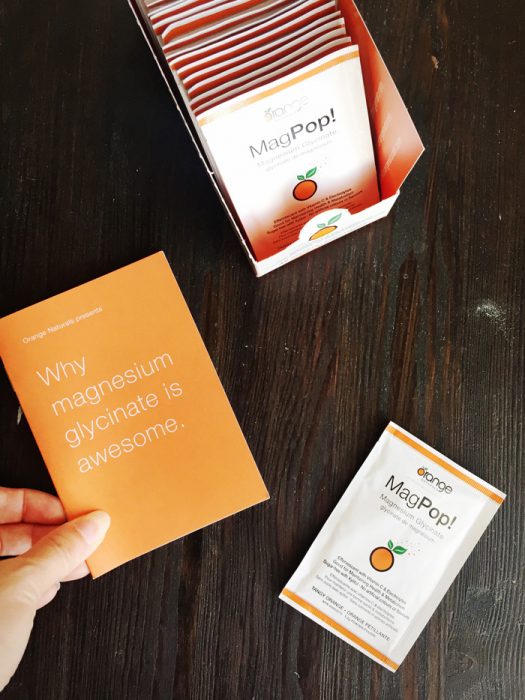
Written By: Gloria Tsang, RD
Title: Founding Registered Dietitian
Alumni: University of British Columbia
Last Updated on:

Magnesium is ubiquitous. In fact, magnesium is so abundant in nature that it is often forgotten that it’s essential for life itself. In our bodies, magnesium is the fourth most abundant mineral, but there is one small problem. Even though many of us would report that we are eating well-balanced diets, Health Canada in 2012 reported that one-third (34% to be exact) of all of Canadian adults are actually not consuming enough magnesium in our diets. Similarly in the United States, the National Health and Nutrition Examination Survey (NHANES) of 2005–2006 also found that the almost half (48%) of the entire population is not consuming enough magnesium.

Table of Contents
Magnesium is used in many physiological and biochemical functions and is needed by more than 300 enzymatic reactions in our bodies. We won’t need to investigate all 300 functions. Most commonly, magnesium plays a major role in nerve function, heart health, muscle contraction (hello leg cramps!) and even mental health!
The recommended requirement of magnesium for average teens and adults are 320 mg per day for women and 400 mg for men. Kids between 9 and 13 need 240 mg a day, whereas 4 to 8-year-olds require 130 mg a day.
Magnesium cannot be produced in the body so the only way for us to obtain it is thru diet. The best sources of magnesium are legumes, nuts, seeds, fish, and whole grains. As a general rule, foods with dietary fiber contain magnesium.
Food (Magnesium per serving)
As there were a few studies suggesting that magnesium deficiency was linked to cardiovascular disease in areas where water was low in magnesium, it is important to consider a magnesium supplement if your diet doesn’t include enough nuts & seeds as well as whole grains.
There are many magnesium dietary supplements on the market but be careful which ones you buy. Some, like magnesium citrate and magnesium carbonate are also used as a laxative and should not be taken for an extended period of time.
Another form of magnesium supplement is magnesium glycinate and Orange Naturals is the brand you may look for. Magnesium and glycine form a much stronger bond, and hence it delivers magnesium right to the intestine for absorption without being broken down half way thru, resulting in unbonded magnesium causing bloating and diarrhea. I’ve tried the MagPop! by Orange Naturals – a fun powder mix designed for kids – and understand why adults love it too. Remember I mentioned above people not eating enough seeds and whole grains? Kids mostly fall into this group! I always said – food first. Definitely find ways to include more magnesium-rich foods in your child’s diet. If that fails, this powder supplement with an orangey-taste can act as a backup! Each packet delivers 100 mg of magnesium and 325 mg of vitamin C.

Alumni: University of British Columbia – Gloria Tsang is the author of 6 books and the founder of HealthCastle.com, the largest online nutrition network run by registered dietitians. Her work has appeared in major national publications, and she is a regularly featured nutrition expert for media outlets across the country. The Huffington Post named her one of its Top 20 Nutrition Experts on Twitter. Gloria’s articles have appeared on various media such as Reuters, NBC & ABC affiliates, The Chicago Sun-Times, Reader’s Digest Canada, iVillage and USA Today.
cheese, edamame, magnesium, nuts, pumpkin seeds, salmon, soy, sunflower seeds, supplements